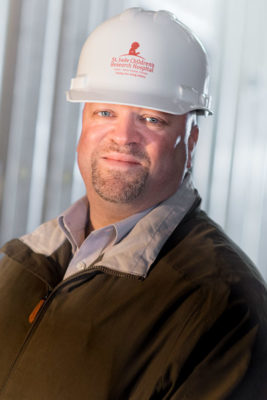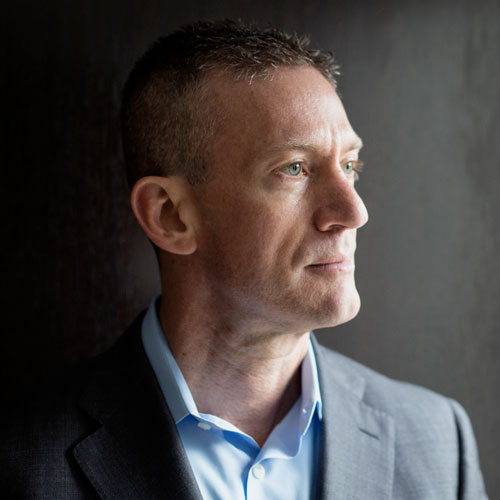
Joining an organization that’s already immersed in a massive expansion program can be an intimidating prospect on many fronts—not least of all simply getting up to speed. Fortunately for Les Steele—director of facilities planning for St. Jude Children’s Research Hospital in Memphis, Tennessee—his background includes 22 years as a US Navy Civil Engineer Corps officer and experience as an engineering manager and construction manager, which prepared him for being dropped in the deep end.
“You need to be able to hit the ground running and quickly pick up on history and perspectives involved in key decisions,” he says. “You need to contribute, add value, quickly get to know the key players, and learn who to count on. I’m not shy about asking for help or directions, and I’m not new to figuring it out for myself.”
That’s a good thing considering the workload that St. Jude is facing in the next few years, and although Steele is quick to note that he is only part of the team planning and executing all of this work, he’s also thankful to have the expertise of two long-term members of the organization helping to guide him.
“My boss, Mike Harber, is vice president of facilities management,” he says. “Mike has been at St. Jude for more than 16 years and also comes from a similar, Navy Civil Engineer Corps career. John Curran, director of design and construction, has also been here for more than 18 years. They’ve had a major impact on the growth and development of design and construction at St. Jude.”
Steele and his team have a number of partners in the area of design and construction, including The Crump Firm – Architects. “With Mr. Steele’s lengthy experience in facilities planning, it is indeed a pleasure to work with him as The Crump Firm – Architects continues to design major state-of-the-art facilities for St. Jude Children’s Research Hospital,” the The Crump Firm’s chairman and CEO Metcalf Crump says.
No matter the length of one’s tenure at St. Jude, all personnel and contractors are striving for the same thing—doing whatever they can toward the organization’s greater goal of finding cures and saving children. Steele says that perhaps the most enjoyable aspect of his role at St. Jude is being a part of a team that works toward that mission (“Something bigger than me or bigger than profit margin,” he notes), and the quality of people he gets to work with on a daily basis. That’s something Steele became accustomed to in his Navy days, and having a singular drive is one of his tenets of good leadership.
“I learned early in my Navy career to listen to—and learn from—the folks who had been around the block a few times, even if they happened to be junior in the chain of command,” he says. “You have to be committed to success and accomplishment by the team. It doesn’t do any good for you to look good if the team fails.”
Steele grew up in Brazil as the son of Baptist missionaries, and he says his formative years were spent in both Brazilian and American schools, speaking both Portuguese and English. During his Navy career, Steele served on deployments to Spain and Iraq, and he also attended the Defense Language Institute, where he learned to speak Italian, followed by three years in Italy. This international exposure also solidified Steele’s belief that talent can be found anywhere and communication—in any language—is another key to success.
“It influenced my ability to adapt to new ways of looking at problems and potential solutions,” he says. “Be honest and overcommunicate if you have to. It’s important to make sure everyone understands the objective and purpose of what you’re doing.”
For Steele—and his team—that’s a lot more than simply planning for design and construction of buildings on a campus. It’s planning facilities that are going to help change lives in a positive, meaningful way.
Multicultural Development
For Les Steele, director of facilities planning for St. Jude Children’s Research Hospital, growing up as an American in Brazil provided advantages that he was able to identify at a young age.
“I grew up almost as a Brazilian, speaking Portuguese fluently,” he recalls. “My global perspective and cultural awareness was already at a level above most of my peers in college.”
He says his international deployments during his time in the Navy fortified his development as someone who could communicate and work in areas throughout the world.
“My upbringing and exposure to other countries, languages, and cultures has increased my appreciation for the talent that we have in some of our international coworkers and professional partners,” he says. “It has improved my communication skills through a better understanding of language; it also broadened my perspective and influenced my ability to adapt to new ways of looking at problems and potential solutions.”
It’s also provided him an outlet to keep his communication skills sharp, he notes.
“It is fun to identify coworkers and professional partners that I can practice my Portuguese and Italian with,” he laughs.
Photo: Seth Dixon


